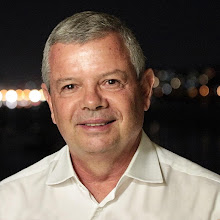Denmark Passes Legislation: 100% Renewable Energy by 2050!
SustainableBusiness.com News
Denmark's Parliament has passed the most ambitious green economy plan in the world: it will generate 35% of its energy from renewable energy by 2020 and 100% by 2050.
Martin Lidegaard, Denmark's Minister for Climate, Energy and Building says, "Denmark will once again be the global leader in the transition to green energy. This will prepare us for a future with increasing prices for oil and coal. Moreover, it will create some of the jobs that we need so desperately, now and in the coming years."
First, cut greenhouse gas (GHG) emissions 34% below 1990 levels by 2020 and reduce energy consumption 12% below 2006 levels.
Second, supply 35% of energy from renewables, with wind providing 50% of that. The rest will come from renewable heat, smart grid, biogas, and other green technologies.
The agreement is important for delivering on the political goal that Denmark's entire energy supply (electricity, heating, industry and transport) is covered by renewable energy in 2050, says the document.
Wind energy, which Denmark has long exploited, currently provides 25% of the country's electricity. Vestas, the world's leading turbine maker, is based there.
While cleantech accounts for about 0.3% of U.S. gross domestic product, it accounts for 3.1% in Denmark, largely because of its strong wind industry.
Details of the Plan
The plan outlines goals and funding strategies for every sector of society including industry and transporation.
To achieve 50% wind energy, the program calls for 1500 megawatts (MW) of offshore wind and 1800 MW of onshore wind by 2020, to provide for replacement of older turbines.
- incentives for large-scale power plants to convert from coal to biomass and commits funds to promote geothermal energy;
- allocates funds to help existing buildings convert from oil boilers to renewables.
- bans oil and natural gas boilers in new buildings in 2013 and in existing buildings in 2016, where district heating is available.
- subsidizes energy efficiency investments in industry and the use of renewable energy in production processes.
- development of a comprehensive smart grid strategy so that renewables can power the grid.
- ambitious plan to expand biogas in industrial processes, the natural gas grid and transportation.
- development of a strategy to promote energy efficient vehicles, subsidies for electric car charging stations, hydrogen infrastructure and natural gas infrastructure for heavy transport. Fuels must contain 10% biofuels by 2020.
Project Better Place operates an electric car battery swapping network in Denmark.
- continued investments in research, development and demonstration in energy technologies.
- includes financing mechanisms including tariffs on energy distribution to fund efficiency improvements, a supply tax on space heating to fund biogas, industrial combined heat and power (CHP), and a surcharge on electricity bills to subsidize renewables.
Fonte: Sustainable Business























Nenhum comentário:
Postar um comentário
Contribua. Deixe aqui a sua crítica, comentário ou complementação ao conteúdo da mensagem postada no Blog do Axel Grael. Obrigado.